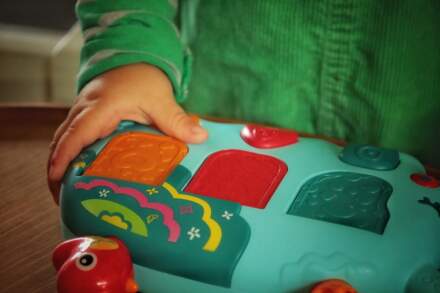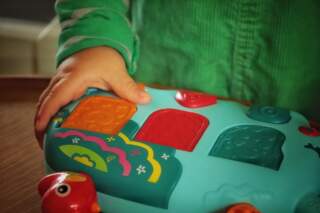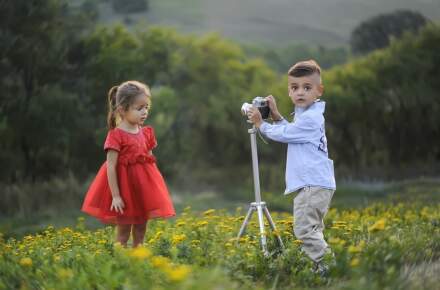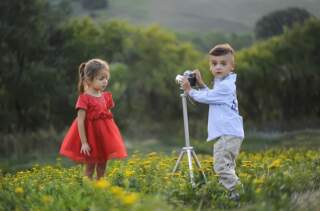Introduction
Choosing the right toys for toddlers can be a daunting task for parents. At this stage of development, children are increasingly curious and eager to explore the world around them. As they grow, toddlers engage in various forms of imaginative play that not only entertain but also facilitate essential learning experiences—cognitive, social, emotional, and motor skills development. The goal of this guide is to help parents make informed choices about toddler toys that enhance learning while ensuring countless hours of fun.
Understanding Child Development and Learning Through Play
The Importance of Play in Early Childhood
Play is often heralded as the work of children. For toddlers, play is more than just a leisure activity; it’s a foundational component of their growth and development. Through play, children learn to express feelings, solve problems, and build social relationships. Researchers emphasize the importance of play in developing cognitive skills, such as critical thinking and creativity, and emotional skills, such as empathy and self-regulation.
Age-Appropriate Toy Selection
When selecting toys for toddlers, it is essential to consider their developmental stage:
-
Cognitive Development: At this age, children thrive on exploring their environment and understanding cause and effect. Toys that promote cognitive skills include puzzles, stacking blocks, and shape sorters. These toys help toddlers develop problem-solving skills, spatial awareness, and an understanding of relationships between objects.
-
Social and Emotional Growth: Through collaborative play, children learn essential social skills, such as sharing and teamwork. Toys that promote social interaction include board games, puppets, and role-playing sets. These types of toys encourage imaginative play and help children express their emotions.
- Physical Development: Fine and gross motor skills are vital during toddlerhood. Toys such as crayons, playdough, and building sets promote dexterity and hand-eye coordination, while tricycles and balance bikes encourage physical fitness and coordination.
Key Features to Consider When Choosing Toys
Safety First
Safety is the foremost consideration when selecting toys for toddlers. Look for toys that are made from non-toxic materials, free from small parts that could pose a choking hazard, and designed to withstand rough handling. Compliance with safety standards, such as ASTM or EN71, ensures that toys meet regulatory safety measures.
Educational Value
Opt for toys that are explicitly designed for educational purposes. This encompasses a wide range of options, from traditional toys like books and construction sets to more innovative technology-driven toys. Educational toys should enhance a child’s understanding of basic concepts like colors, numbers, and words while stimulating creativity and enjoyment.
Versatility and Longevity
Investing in versatile toys that can be played with in multiple ways can be more beneficial than single-purpose items. Balancing blocks can be used for stacking, sorting, and creative play. A good toy grows with your child, adapting to their developmental needs over time. Look for toys that can be used in various ways, allowing for extended play value and engagement.
The Role of Parent Engagement
Encouraging parental involvement can further enhance the toy’s educational potential. Select toys that promote interaction between parents and children, such as puzzles that require teamwork or games that involve storytelling. Engage in playtime together to create a supportive learning environment.
The Best Types of Toys for Toddlers
Building and Construction Toys
Building and construction toys, such as LEGO Duplo or magnetic tiles, are excellent for fostering creativity and critical thinking. They encourage toddlers to explore spatial relationships and problem-solving as they build structures and designs.
Art and Craft Supplies
Art materials, such as non-toxic crayons, finger paints, modeling clay, and craft kits, enable children to express themselves creatively. These activities promote fine motor development and can help refine hand-eye coordination.
Books and Storytelling Toys
Reading should be an integral part of a toddler’s daily activities. Engaging books with colorful illustrations and simple narratives help develop language skills and ignite imagination. Storytelling toys, such as puppets and story cubes, also encourage verbal skills and comprehension.
Musical Instruments
Musical toys, such as tambourines, xylophones, and maracas, can be both fun and educational. These toys introduce toddlers to sounds, rhythms, and concepts of music, enhancing their auditory skills and coordination.
Conclusion
Choosing the right toys for toddlers is a pivotal step in fostering their overall development. By prioritizing safety and ensuring that toys are age-appropriate and educational, parents can create a rich environment filled with opportunities for learning and play. Toys should not only entertain but also challenge young minds and stimulate their creative instincts. Investing wisely in these essential tools for growth will provide toddlers with the building blocks they need for a lifetime of learning, curiosity, and joy. Remember, the most valuable toy is one that encourages both playful exploration and a deep sense of wonder about the world.









Leave a Comment